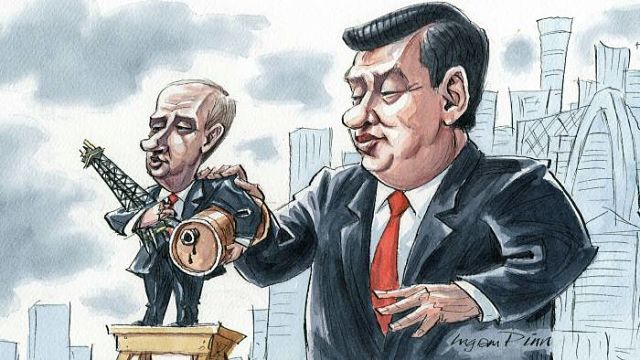Such events are rare, but almost in the same week two geopolitical axes formed in the world. The first axis is a group of countries that not only verbally, but also actively support Ukraine, which is under the threat of military invasion by the Kremlin’s forces.
In addition to Poland and the Baltic countries, which had previously announced the start of arms supplies, British Prime Minister Boris Johnson visited Kyiv this week. The British have long provided active military support to Ukraine, in contrast to Germany and France, which are essentially trying to block it.
This time, however, the focus was on giving the cooperation the character of a strategic alliance. Thus, the northern part of this axis starts in London, passes through Poland and the Baltic countries, and ends in Kyiv.
However, as became clear this week, it does not stop there, as almost immediately after Johnson, Turkish President Recep Tayyip Erdogan arrived in Kyiv, who also concluded strategic partnership agreements with Ukrainian President Volodymyr Zelensky. The agreements include the organization of drone production in Ukraine and the creation of a free trade zone between the two countries.
In addition, Ukraine is likely to become an observer in the Organization of Turkic States, as requested by the Ukrainian president from Turkey. Thus, the southern part of this axis will extend from Kyiv to Ankara.
On the other hand, today, in the midst of Vladimir Putin’s visit to Beijing, a pompous document entitled «Joint Statement of the Russian Federation and the People’s Republic of China on International Relations in a New Era and Global Sustainable Development» was published. The document is aimed at demonstrating the alliance between Moscow and Beijing to the West, especially the Anglo-Saxons, as it emphasizes their alliance in Southeast Asia — AUKUS.
It is noted that the «Chinese side views with understanding and supports the long-term legally binding security guarantees for Europe proposed by the Russian Federation». It should be noted that China «views with understanding» rather than «supports».
In essence, it can be said that for Ukraine, whose goal is to defend its independence from Putin’s Russia, the alliance formed this week is an undeniable success. Both the EU and NATO, whose expansion frightens the Kremlin, are too diverse organizations with serious internal contradictions.
Meanwhile, Britain and Turkey, as well as Poland and the Baltic states, are states with geopolitical vision and determination that can offer Ukraine what NATO and the EU currently cannot.
As for the Kremlin, it has nothing to gain from an alliance with China, not even recognition of Crimea, which Beijing refuses to grant. For Putin, who has put forward ambitious ideas about creating a single Europe from Lisbon to Vladivostok, trying to restore the USSR and «historic Russia,» leaning on China without achieving any of this would mean admitting his geopolitical bankruptcy.
Unlike Ukraine, Russia will not receive technology or modern weapons from China in its alliance. However, China will continue to have access to Russian resources, but even the Kremlin has failed to lay the Chinese New Silk Road through Russia — it will be laid through Central Asia. In other words, Russia will simply become a peripheral appendage of China, presenting it as an equal alliance of two equal powers.
As for the attitude of Muslims towards these alliances, it is clear. There are certainly many problems in the West, but no one wants to end up in concentration camps for Uighurs or in the Chinese system of totalitarianism with its social credit and facial recognition at every step.
Besides, Poland and the Baltic countries represent the healthiest part of the West, and the United Kingdom is one of the most Muslim-friendly countries. If they interact with Turkey, with Ukraine as a bridge, and the policy of the Crimean Tatars as an important element of it, it could become something that has the advantages of the West but is free of its main contemporary shortcomings.

